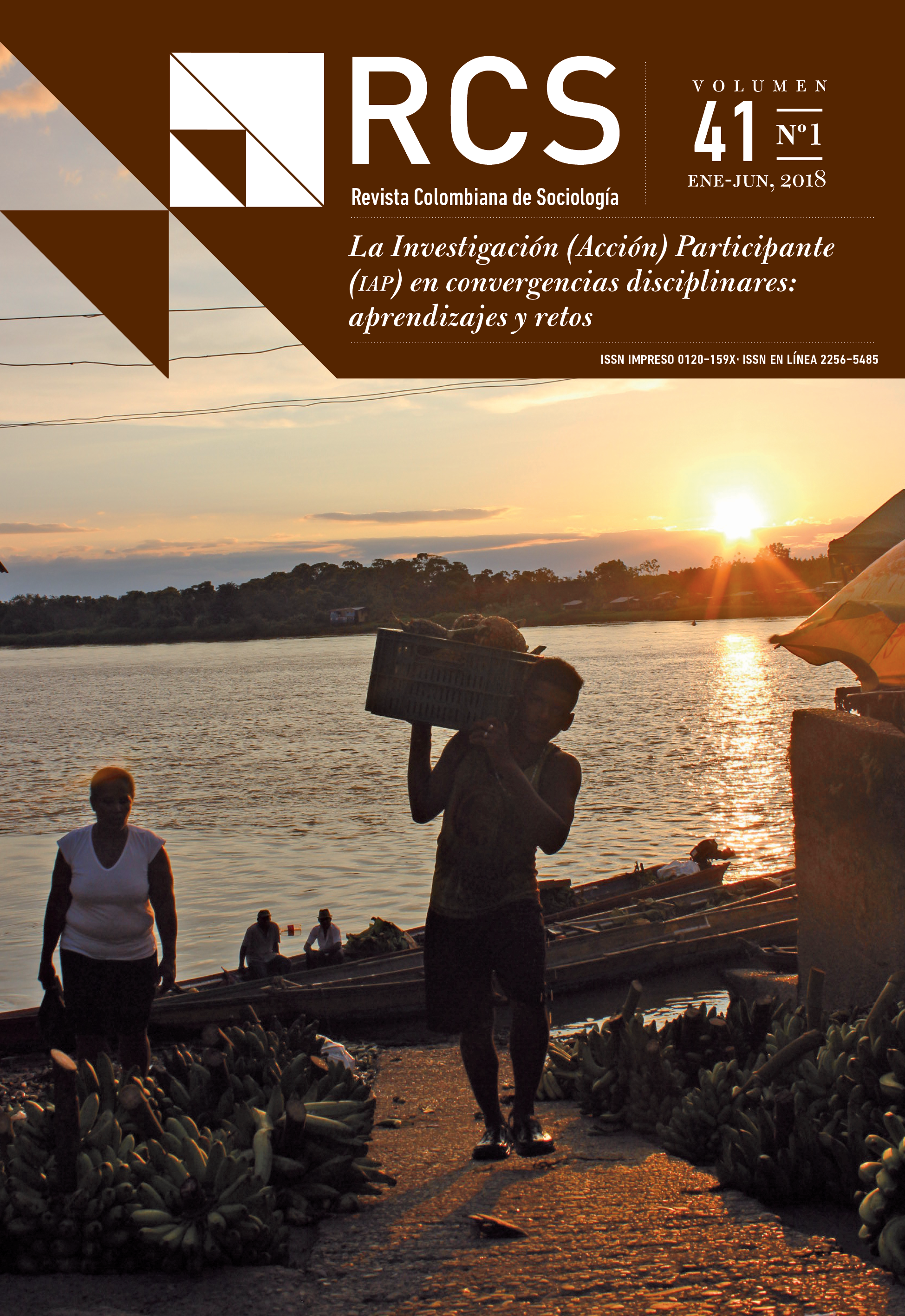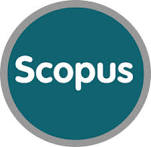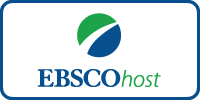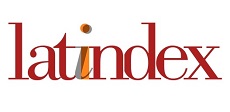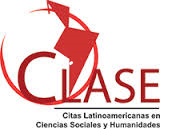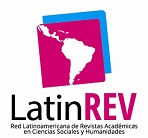From action research to knowledge democracy Cartagena 1977-2017
De la Investigación Acción a la democracia del conocimiento. Cartagena, 1977-2017
Da pesquisa-ação à democracia do conhecimento. Cartagena 1977-2017
Beginnings
I (Budd) was working in Tanzania from 1970-1975 as the head of the research department of the Institute for Adult Education at the University of Dar-es-Salaam. I was part of a community of young researchers, both Tanzanian and expatriates, who had been attracted to work in Tanzania because of the vision of the late President Julius К Nyerere. Mwalimu (teacher) Nyerere was an engaging intellectual as well as the leader of the Independence movement. He had a vision for building Tanzania from an African political framework. His political philosophy was called Ujamaa, a Kiswahili word related to family hood. His vision was often referred to as African socialism. Among the principles of this approach was the call to build on the knowledge and skills of ordinary women and men. The Tanzanian approach was one of the earliest examples of participatory development. As he said at times, "Poor people do not use money for a weapon, they use ideas and leadership". Over a period of time, we began, as an informal network of researchers, to find that the epistemological tools that we had been trained with, positivist, quantitative, and survey research methods, did not fit well with the Tanzanian emphasis on participatory development. Our research methods, developed in the seats of colonial power, centralized meaning making and the naming of the world. Researchers sitting in the capital city of Dar-es-Salaam were thinking up research topics, gathering data in large-scale field survey, only to make meaning of the subsequent findings based on the logical imagination in the minds of the researchers. Over a period of several years, many of us evolved an approach to research that we believed fit the vision, political aspirations, and reality of the Tanzanian context more adequately. We were encouraged in this work by a visit in 1971 of Paulo Freire who spoke to us about his approach to research that he called thematic investigation. His sophisticated theoretical approach to conscientization and the call to both read and write the world were very similar to the vision and practice that Nyerere was calling for. We called this way of working; participatory research. We first published a series of articles on participatory research in the journal of the International Council of Adult Education, Convergence in 1975 (Hall, 1975).
In 1976, the International Council for Adult Education (ICAE) organised the First International Conference on Adult Education and Development in Dar-es-Salaam, Tanzania. I was the Conference Secretary, the late Dr. Malcolm Adiseshiah, former Deputy Director General of UNESCO, was the conference chairperson. President Nyerere was the keynote speaker; Paulo Freire was an additional presenter. We made a major presentation to the 650 delegates at the Assembly arguing for the participatory research approach. The call to support participatory research was included in the Design for Action that was adopted by the delegates at the time. The full conference proceedings, a paper on participatory research, and the Design for Action are available in Adult learning: a design for action (Hall and Kidd, 1978).
In 1975, I began working with the International Council for Adult Education as the Research Officer and, as I have mentioned, as the Conference Secretary for the 1976 Dar-es-Salaam Conference. A key ambition of the ICAE, following the 1976 Conference was the establishment of an international participatory research network. We had learned of great interest in many parts of the world, including India, Latin America, Europe, and elsewhere in research approaches that were not neutral. There was interest in approaches to knowledge creation that recognized communities, social movements, civil society organisations and others as the central source of knowledge, not simply recipients of researchers' distantly generated findings. At a meeting held near Toronto in 1977, the decision was taken to create a network. Through connections in Latin America, Orlando Fals Borda was told about our earlier work in Tanzania and he invited me to Cartagena for his first international conference on action research. The 1977 Cartagena conference was a powerful influence on my work and on the directions that we took in building the participatory research network.
The 1977 conference took place in the colonial Hotel Caribe in Cartagena, a grand monument to the colonial past and an elegant setting for the group of 100-150 intellectual-activists who turned up to engage in a decolonisation process. It is important to remember that the dominant intellectual leadership throughout Latin America, influenced by the Cuban Revolution of earlier days, was fundamentally Marxist in approach based on a vanguard party or political formation. Vanguard parties had been in action during the 1960s and early 70s. By 1977, many of the Latin American countries had fallen victim to military dictatorships. From my perspective, what Orlando Fals Borda had brought together in 1977 were three things. First, he wanted to illustrate and share his vision and work in investigacion y accion, work that he had developed with Andean peasants as well as with Afro-Colombians of the Coastal regions. Second, he wanted to show the spread of these ideas, intellectual and methodological counter punches to the dominant positivistic and objective social science of the day. He accomplished the latter through invitations to persons such as me, others from Africa, from Europe, and from many parts of Latin America. His third objective was to challenge the political intellectuals from Latin America to consider a people-centred approach to knowledge creation as a critical tool for political and cultural action. In many ways, the vision of Orlando Fals Borda can be considered as a movement in the field of social science research parallel to that of Paulo Freire in the field of pedagogy. It is noteworthy to recall that in the late 1970s and early 80s the movements of popular education associated with Freire and the movement of investigacion y accion participativa took root in almost all of the countries of Latin America. History reflects that these movements have been powerful influences in the return to democracy following years of dictatorships.
But let me return to the conference itself. During the conference, I asked Orlando Fals Borda for some time to speak with him about the international participatory research network that we were trying to build. I asked for his support, his willingness to share his work with persons in many other parts of the world. I shared with him the origins of what we were calling participatory research. I should note that in the English language, the field of organisational development had essentially captured the concepts of action research. Action research in the English-speaking world of the day was an instrumental, neutral process located in management science. It did not carry the political and mobilizing connotations that Orlando Fals Borda had developed through his work. Orlando Fals Borda agreed to lend his support to the development of what became known as the International Participatory Research Network (IPRN).
My other memories of 1977 were listening to the debates of towering left intellectuals such as Anibal Quijano, Xavier Albo, James Petras, Paul Oquist and many more. I recall late, late nights arguing with the interpreters over subtle nuances of speeches made during the day that were important to our understandings of knowledge, politics, and change. The evenings were animated by the music of the Afro-Colombians and the cumbias and salsas of the Caribbean coast. Although 1977 is a long time ago, the memories remain so strong. The fundamental principles so important!
International Participatory Research Network (IPRN)
Following a meeting in Caracas in October 1978, an international Network of Participatory Research (IPRN) began to function under the aegis of ICAE. Regional networks began to be animated in different ways. Francisco Vio Grossi (Chilean exile in Venezuela) organised the Latin American network which later turned into Consejo de Educación Popular de América Latina y el Caribe (Ceaal) (still active today)1. I (Rajesh) began Network of Participatory Research in Asia with practitioners, scholars and activists from India, Bangladesh, Nepal, Philippines, Korea and Sri Lanka. This Network later transformed in to pria, global training centre on participatory research which has completed 35 years of its journey2.
The IPRN convened the First International Forum on Participatory Research in April 1980 in Ljubljana, then Yugoslavia. The Forum invited Orlando Fals Borda and his partner Maria Cristina (who was imprisoned in Colombia for political resistance to the authoritarian regime) to participate. Myles Horton and John Gaventa of Highlander Research and Education Centre from Tennessee (USA) were also invited to the Forum.
Orlando Fals Borda had left academia and was involved in direct action research work with the poor campesinos in Colombia. He spoke on the theme of Science and the common people. Orlando Fals Borda emphasised the need for interrogating science from the lived experience of common people; this reflection, based on his recent experience in the field in direct interactions with ordinary farmers, and outside the academia, created the first basis for articulating "science with society", a concept that became popular three decades later in Eu's Horizon 2020 perspective. This is how Orlando Fals Borda spoke about it in Yugoslavia:
At this level of emergent or subversive science - or of repressed and silent culture- the so called popular science may be included when attempting to dynamize it politically, and, therefore, incorporate it into the general scientific stream so that its voice may be heard. We understand popular science or folklore, or popular knowledge or popular wisdom- to be the empirical or common sense knowledge which has been an ancestral, cultural and ideological trait belonging to the people in the social bases [...] this popular knowledge is not codified in the predominant manner and for this reason, it is despised as if it had not the right to articulate and express itself in its own terms. But this popular wisdom, folklore or knowledge also has its own rationality and its own structure of causality; that is to say, it may be demonstrated that it bears merit and scientific validity per se. This knowledge quite naturally remains outside of the formal scientific structure built by the intellectual minority of the dominant system because it means a breach of its rules, and hence the subversive potential which is seen in popular knowledge. Thus, for example, the knowledge of a peasant healer is unacceptable to a medical doctor. And its unacceptability stems from the fact that it ignores and surpasses the medical doctor's institutional schemes whose abstract prescriptions play like chips in a large exploitation game, aiming at an accumulation of capital and at enjoying the lucre from his medical profession. (Fals Borda, 1981, p. 7)
I (Rajesh) was a lecturer at the Indian Institute of Management (Calcutta) at that time, though my passion was in the practice of participatory research. I felt inspired by Orlando Fals Borda at the above Forum to actively consider moving out of academia (which I did a year later in 1981).
Orlando Fals Borda's articulation of action-research was clearly different from the then Euro-American teaching of action-research in management schools. The Latin American version of action research was rooted in the political praxis of societal transformation, challenging unequal relations of power and control. As he listened to the articulation of participatory research, in particular its emphasis on people -as-producers-of-knowledge; Orlando Fals Borda began to re-define his thinking on action research. The outcome was the articulation of participatory action research (PAR) which he later wrote about in great length, initially along with his contributions to ILO'S Rural Employment programme (Fals Borda, 1998), and later as part of Unrisd's research programme on popular participation, in partnership with such scholar-practitioners as Anisur Rahman of Bangladesh and Poona Wignaraja and G D'silva of Sri Lanka (Fals Borda and Rahman, 1991).
Orlando Fals Borda then travelled to India on the occasion of the World Sociology Congress held in New Delhi in 1986. His Indian counterparts in the field of sociology were somewhat intrigued by Orlando Fals Borda's exposition of PAR, and alternative perspectives on knowledge, from the bottom up. The Latin American experiences of par in Colombia, Nicaragua and Mexico of the late 1970s and early 1980s was then presented by Orlando Fals Borda during his India travels. Linking popular struggles for transforming relations of power to people's knowledge, Orlando Fals Borda's book on this theme was subsequently published in India; its clarity emerged:
In this connection we believe it is essential to break the relationship of submission (and the related modes of production of knowledge) found in most types of work and life in our societies and elsewhere, and to induce stable forms of organisation for action (Fals Borda, 1985, p. 10).
Over the next ten years, PRIA continued to practice various forms of participatory research in articulating local knowledge about water, forest, health, land, construction workers and violence against women. It also began to build capacity of practitioners and activists in this methodology. By mid 1990s, PRIA'S interactions with academic institutions started again (after a gap of about 15 years), and set the stage for introducing participatory research in the training of students and faculty (UNESCO Chair, 2014).
Cartagena 1997
Orlando Fals Borda convened the next conclave in Cartagena in June 1997. Both Budd and Rajesh attended that conclave. Entided World Congress on Participatory Convergence in Knowledge, Space and Time, the congress brought nearly 4000 delegates, including academics, students, activists, campesinos and indigenous community leaders.
Budd and Rajesh convened a session on "civil society as space for knowledge construction". We were both working to systematise knowledge practices in local organising and social movements (Hall and Tandon, 2017). I talked about my personal journey in Cartagena 1997:
Academic institutions will continue to produce and disseminate knowledge from the masters to the disciples, and yet they have a role to play in the larger society as well as in the production, reproduction and dissemination of knowledge. Therefore there is a need to engage these institutions of authority, power and control, which define legitimacy, which certify knowledge, which provide resources. Knowledge for transformation therefore is also a struggle to engage these players of great power and authority in our societies... It may appear that this is a stage of statiation. Maturity does not mean salvation. There is a huge and unfinished agenda in my own struggle for knowledge and I hope to pursue this in the remaining part of my personal journey. One of this relates to the growing omnipotence of the electronic media which in the present stage of globalization is promoting homogenization of cultures, lifestyles and value systems. This social homogeneity is undermining a great deal of social diversity and plurality which exists in human civilization and which provides the bedrock for civilizational survival and rejuvenation. I would like to find a way to understand how to engage this powerful media which in today's world have become a major producer and communicator of knowledge. Knowledge for social transformation requires contending with the role of media and media institutions. (Tandon, 1998, p. 102)
Orlando Fals Borda edited a volume based on deliberations in Cartagena 1997, entitled People's participation: challenges ahead. In his concluding remarks at the conference, Orlando Fals Borda called for a "North Star of Altruism" thus:
Therefore I invite you finally to take advantage of this dynamic, historical leeway for hope. May we go home now, even more able and decided to keep on planting everywhere some of the good seeds of social reconstruction that were sown amongst us during this week. (Fals Borda, 1998, p. 236)
Cartagena 2017
The convening of the Cartagena conclave in June 2017, nearly a decade after Orlando Fals Borda passed away, is a tribute to his mentorship. Led by Action Research Network of Americas (Arna), the dialogue this year focused on knowledge democracy. Knowledge democracy is a movement that respects multiple modes, forms, sources and idioms of knowledge production, representation and dissemination (Tandon, Singh, Clover, and Hall, 2016, p. 23).
Doris Santos of UNAL and organiser of Cartagena 2017 was a co-worker of Orlando Fals Borda in his last few years. She described the context:
These are certainly exciting and challenging times for academic citizens in Colombia. Many of us have made the decision to support the very fragile peace process that has just started. This decision implies, among other challenges, helping to reconstruct the relationships and collaborations in our society, starting with our own within the universities (among faculty members, among faculties), while making sense of those with the communities involved in the process. This is a new start for us academics as part of a new upcoming society. Hierarchical relationships inside and outside universities derived from traditional ways of understanding who "owns" and/or "validates" knowledge in society are challenged by new citizenships under construction. Collective reflections upon new political scenarios in the world and the exchange of local experiences of collaborations are really meaningful for us.
Boaventura de Sousa Santos, from Portugal was the best known academic present. His work on epistemologies of the global south, on the effects of epistemicide and on the potential of a university of social movements was magnetic. He drew crowds of students and admirers everywhere he appeared. He was the keynote speaker on the day of the Global Assembly of Knowledge Democracy. His opening remarks on the Global Assembly were sobering. Given the missing persons from the social movements, from the political and social justice frontlines, from the Indigenous communities, this event could not be called the first Global Assembly on Knowledge Democracy. It could be called a planning event, a first step towards something more inclusive. He said that in matters of epistemicide we were living in the contradiction of seeing something new, but recreating the continued colonialisation of knowledge. He said that Freire and Fals Borda has been gifted readers of their times and that their ideas on liberatory education and participatory action research had been right to their times. But we live in a darker, more complex time, a time where knowledge and power are further fragmented by location, identity, culture, sexuality, gender, ability, spirituality and more. We need, he said, a theory and a practice that recognises and supports an ecology of knowledges, that is located outside the academy as well as inside and can confront the neoliberal structure directly. He called for a reclamation and revitalisation of popular education (Tandon and Hall, 2017, June 23).
Previous networks and partnerships of participatory research, par and action research had changed, dissolved and merged over trajectories of time and space. Yet, the essence of participatory action research, and the vision of Orlando Fals Borda continued. Budd and Rajesh have sustained our 40 years of personal and professional partnership with new vigour over the past decade. We have now focused on insertion of PAR principles and values in the teaching of next generation of students inside academia. Over the past decade, we have worked with GUM to co-edit two volumes of great relevance to this movement of knowledge democracy:
-
Knowledge, Engagement and Higher Education: Contributing to Social Change (2014) [5th World Report on Higher Education]
-
Towards a Socially Responsible University: Balancing the Global with the Local (2017)3 [6th World Report on Higher Education]
We have been jointly appointed UNESCO Chair on Community-Based Research and Social Responsibility in Higher Education in 20124. Since then, we have documented and advocated for co-construction of knowledge and respectful partnerships between communities, universities and government leading to: new capacities; new solutions to pressing problems related to sustainability, social and economic disparities, cultural exclusion, mistrust and conflict; and awareness among policy makers; enhanced scholarship of engagement; and social responsibility in Higher Education.
We are now focused on training the next generation of PAR researchers; community-based participatory research methodologies will be taught under a global consortium entitled Knowledge for Change (K4C). As we continue our journey after Cartagena 2017, we are acutely aware of the contestations across epistemologies, values and world-views. The present race for knowledge economy tends to further devalue local practices and knowledge systems, as well as systematically marginalise local languages. Mother-tongue scholarship in sub-Saharan Africa is challenging the western canons of science once again (Hall, 2015, p.5).
Orlando Fals Borda's vision of democratic engagement of academics with local communities needs to be taken forward with greater attention to epistemic justice in today's contested world. Peace, camaraderie and solidarity among diverse communities can only be built and sustained on the practice of respect for knowledge of all.
References
Referencias
Fals Borda, O. (1981). Science and the common people. Journal of Social Studies, (11), 19.
Fals Borda, O. (1985). Knowledge and People’s Power: Lessons with Peasants in Nicaragua, Mexico and Columbia. New Delhi, India: Indian Social Institute.
Fals Borda, O. (Ed.) (1998). People’s participation: challenges ahead. Bogota: Colciencias, Instituto de Estudios Politicos y Relaciones Internacionales, Universidad Nacional de Colombia.
Fals Borda, O. and Rahman, M. A. (1991). Action and knowledge: Breaking the monopoly with participatory action research. New York: Apex Press.
Hall, B. L. (1975) Participatory Research: An Approach for Change. Convergence, 8(2), 24-32.
Hall, B. L. (2015). Beyond epistemicide: Knowledge democracy and higher education. Retrieved on July 31, 2017 from: http://Unescochair-cbrsr.org/Unesco/wp-content/uploads/2015/09/Beyond_Epistemicide_final.pdf
Hall, B. L. and Kidd J. R. (1978). Adult learning: design for action (A comprehensive international survey). Oxford: Pergamon.
Hall, B. L. and Tandon, R. (2017). Decolonization of knowledge, epistemicide, participatory research and higher education. Research for All, 1(1), 6-19. Retrieved on July 31, 2017 from: http://Unescochair-cbrsr.org/pdf/resource/RFA.pdf ].
Tandon, R. (1998). Struggle for knowledge: A personal journey. In O. Fals Borda (Eds.), People’s participation: challenges ahead (pp. 95-103). Bogotá: Colciencias, Instituto de Estudios Politicos y Relaciones Internacionales, Universidad Nacional de Colombia.
Tandon, R. and Hall, B. L. (2017, June 23). Cartagena 2017: Mecca of Participatory Action Research? [blog post]. Retrieved from http://Unescochair-cbrsr.org/index.php/2017/06/23/cartagena-2017-mecca-of-participatory-action-research/.
Tandon, R., Singh, W., Clover, D., and Hall, B. (2016). Knowledge democracy and excellence in engagement. IDS Bulletin on Engaged Excellence, 47(6), 19-35. [Also, available at: http://unescochair-cbrsr.org/index.php/2017/06/23/cartagena-2017-mecca-of-participatory-action-research/
UNESCO Chair (2014). PRIA’s engagements with Higher Education Institutions: Initiatives in Community Based Research (CBR). Retrieved on July 31, 2017 from: http://Unescochair-cbrsr.org/Unesco/pdf/resource/PRIA_Engagement_with_Higher_Educational_Institutions.pdf.
Cómo citar
APA
ACM
ACS
ABNT
Chicago
Harvard
IEEE
MLA
Turabian
Vancouver
Descargar cita
CrossRef Cited-by
1. Sandra Liliana Aya Angarita, Felipe Ramírez-Cortázar. (2026). The Palgrave Encyclopedia of Theoretical and Philosophical Psychology. , p.1. https://doi.org/10.1007/978-3-031-70581-6_503-1.
2. Natalia C. Piland, Thiago B. A. Couto, Maria Pulido‐Velosa, Juan Cruz, Mariana Varese, Gina Leite, Sebastian Heilpern, Aaron A. Koning, Jynessa Dutka‐Gianelli, Sue Jackson, Pendo Hyera, Faisal Hossain, Tamlin Pavelsky, Angélica M. Gómez, Tun Myint, Wisa Wisesjindawat‐Fink, Brenna Kays, Elizabeth P. Anderson. (2026). Public Participation in Tropical Conservation and Environmental Management Research: Toward a Locally Grounded and Reflexive Practice. Biotropica, 58(1) https://doi.org/10.1111/btp.70149.
3. Jahid Siraz Chowdhury, Haris Abd Wahab, Rashid M. Saad, Parimal Roy. (2021). Social Justice Research Methods for Doctoral Research. Advances in Information Quality and Management. , p.25. https://doi.org/10.4018/978-1-7998-8479-8.ch002.
4. Janel Seeley, Mary McAteer, César Osorio Sánchez, Yuliana Kenfield. (2019). Creating a space for global dialogue on knowledge democracy: experiences from the inaugural global assembly for knowledge democracy. Educational Action Research, 27(1), p.22. https://doi.org/10.1080/09650792.2018.1552170.
5. Oscar Alejandro Quintero Ramírez. (2019). Hacia una sociología de la educación propia. Reconstrucción reflexiva a partir de la obra de Orlando Fals Borda. Revista Colombiana de Sociología, 42(2), p.135. https://doi.org/10.15446/rcs.v42n2.78315.
6. Erik Lindhult. (2022). Transformative Research and Higher Education. , p.107. https://doi.org/10.1108/978-1-80117-694-120221006.
7. Álvaro Ramírez-March, Marisela Montenegro. (2023). On narrativity, knowledge production, and social change: a diffractive encounter between the Narrative Productions methodology and Participatory Action-Research. Qualitative Research in Psychology, 20(4), p.579. https://doi.org/10.1080/14780887.2021.1994678.
Dimensions
PlumX
Visitas a la página del resumen del artículo
Descargas
Licencia
Derechos de autor 2017 Revista Colombiana de Sociología

Esta obra está bajo una licencia internacional Creative Commons Atribución-NoComercial-SinDerivadas 4.0.
Política propuesta para revistas de acceso abierto
Los autores que publiquen en esta revista aceptan las siguientes condiciones:
La Revista Colombiana de Sociología no cobra a las y los autores por postulación, evaluación o publicación de artículos. Los autores conservan los derechos de autor y ceden a la revista el derecho de la primera publicación, con el trabajo registrado con la licencia de atribución de Creative Commons, que permite a terceros utilizar lo publicado siempre que mencionen la autoría del trabajo y a la primera publicación en esta revista.
Los autores pueden realizar otros acuerdos contractuales independientes y adicionales para la distribución no exclusiva de la versión del artículo publicado en esta revista (p. ej., incluirlo en un repositorio institucional o publicarlo en un libro) siempre que indiquen claramente que el trabajo se publicó por primera vez en esta revista.
Se permite y recomienda a los autores a publicar su trabajo en Internet (por ejemplo en páginas institucionales o personales) antes y durante el proceso de revisión y publicación, ya que puede conducir a intercambios productivos y a una mayor y más rápida difusión del trabajo publicado (vea The Effect of Open Access)



